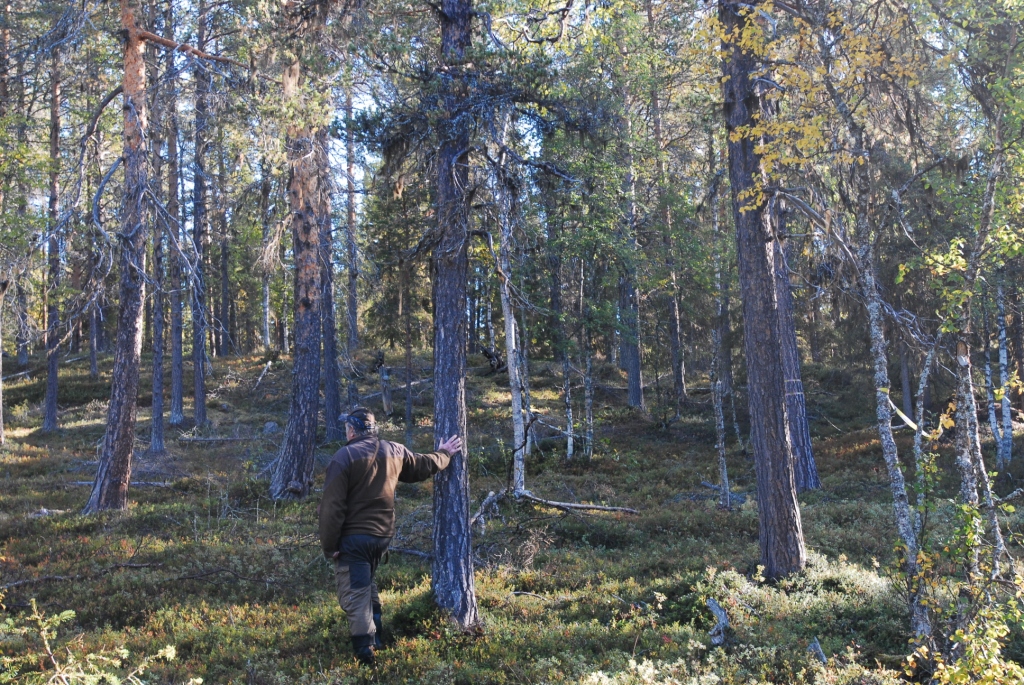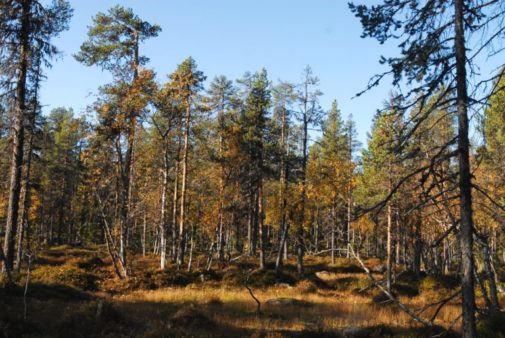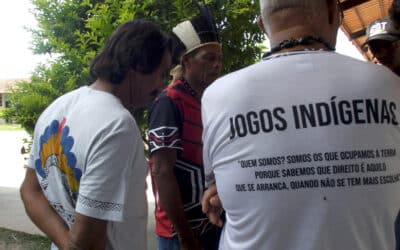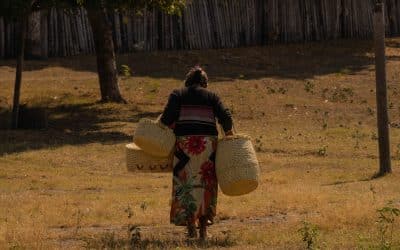par Kristina Bäck, Protect the Forest, Suède, Sweden
L’entreprise d’État forestière suédoise Sveaskog a annoncé qu’elle vendra 10 400 hectares additionnels de forêt, dont plus de 2 000 hectares touchent aux forêts entourant Maskaure, un village Sami de la municipalité de Arjeplog et où vivent des colonies importantes de rennes. La compagnie planifie aussi de procéder à des coupes forestières dans 32 forêts naturelles dans la même zone et où vivent les rennes, pour un total de 400 hectares. En synergie avec la Société suédoise de Conservation de la nature, les Sami de Maskaure s’efforcent de contrecarrer ces projets.
Continuez à lire en anglais…
Five forest properties in the village’s reindeer pastures are up for sale, and so far almost 10,000 hectares of vital reindeer grazing habitat have already been sold around Maskaure, with no consultation with the Sami at all. When forests are sold, they are usually clear-cut and then converted to commercial plantations, which is the worst option for reindeer pastures.
Lichen that grow on the ground and in the trees in natural forests are crucial food for the reindeer, and are only abundant in older forests. Sveaskog’s clear-cutting and subsequent soil preparation for replanting destroys lichen and thus also the reindeer’s food. The biodiversity that was once there is gone forever.
The logging of reindeer grazing forests and other high conservation value natural forests has been going on for years. Most of the forests with hanging lichens have already been felled, and only small remnants of natural forests now remain. But they must be protected, as these remnants are vital to the survival of the village’s reindeer during the long winter, when snow makes ground lichen inaccessible as a food source.
In an open letter to Sveaskog, Leif Lundberg, Marcus Lidström, Björn Mildh and Johanna Nilsson write that the Sami have clearly rejected the planned sale and logging of their forests, but Sveaskog has not respected their wishes.
The Swedish state has recognized the Sami as Indigenous Peoples, and this was written into the Constitution in 1977. Despite this, they are still refused the rights that should be granted to Indigenous Peoples in accordance to the UN Convention ILO 169. In the meantime, the logging continues and the consultations with Sami are always held on the terms of Sveaskog.
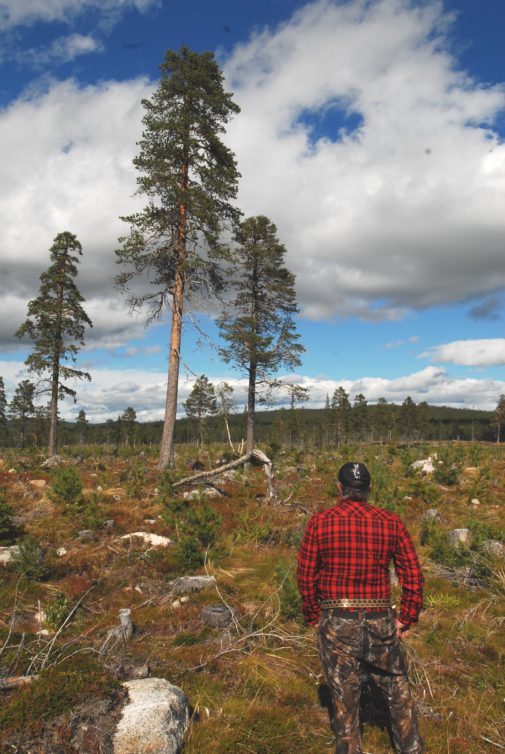
Photo by Björn Mildh. This is the remains of a natural forest at Guossavare which also used to be a reindeer grazing forest. After being clear-cut it was converted to a plantation. Leif Lundberg, a Sami from Maskaure village, comments: « It is difficult to say no to Sveaskog ».
A Sami representative said: « Of course, it’s blackmail, all the time. The Sami have to make constant concessions just so that the most vital forests can remain. They see making concessions as the only way out to be able to continue with their reindeer herding at all.”
The open letter describes how Sveaskog takes advantage of its superior resources and influence, and that the Sami of Maskaure are being « punished » for saying “no” to the company’s plans to log another 17 reindeer grazing forests in 2019, and for protesting against the sale of their forests. Sveaskog is trying to make an example of Maskaure, to show other Sami villages what will happen if they dare to stand up to the company. The Sami don’t say “no” to be antagonistic, they do it out of necessity because of the ever-increasing loss of pasture.
The open letter ends: « Sveaskog, you are acting deeply unjustly towards our Indigenous Peoples. No forests should be sold without equal consultation. The Sami’s “no” is to be respected. The remaining grazing areas and natural forests shall be saved, not cut. »
Photos by Björn Mildh. The featured photo at the top of this page is a natural forest at Bientie in the reindeer grazing pastures of Maskaure. Sveaskog planned to log this forest in the winter of 2018/2019, but the Sami and some conservationists managed to stop it from being logged. Unfortunately, Sveaskog still plans to clear-cut this forest. In the picture is Leif Lundberg, a Sami from Maskaure.

